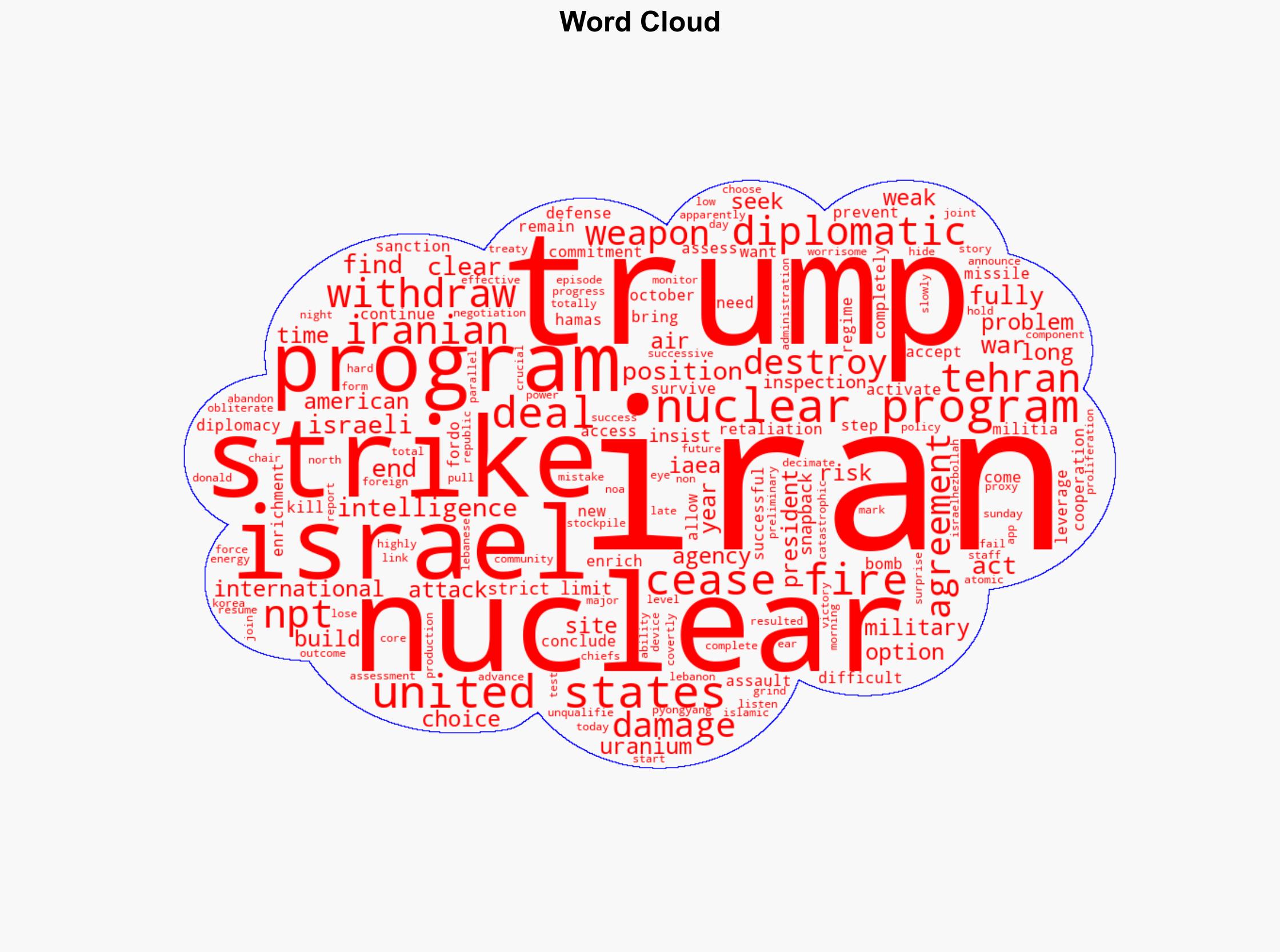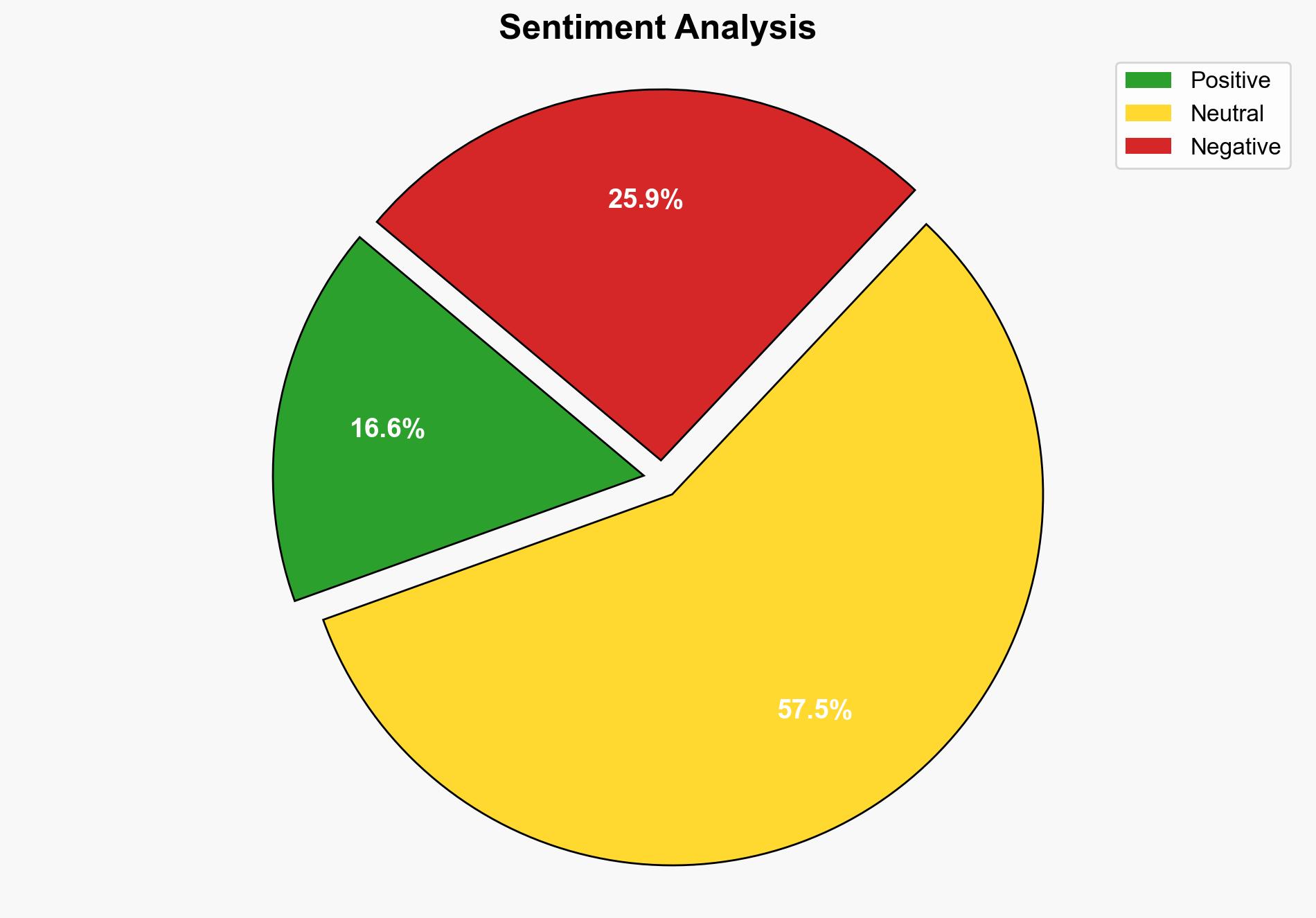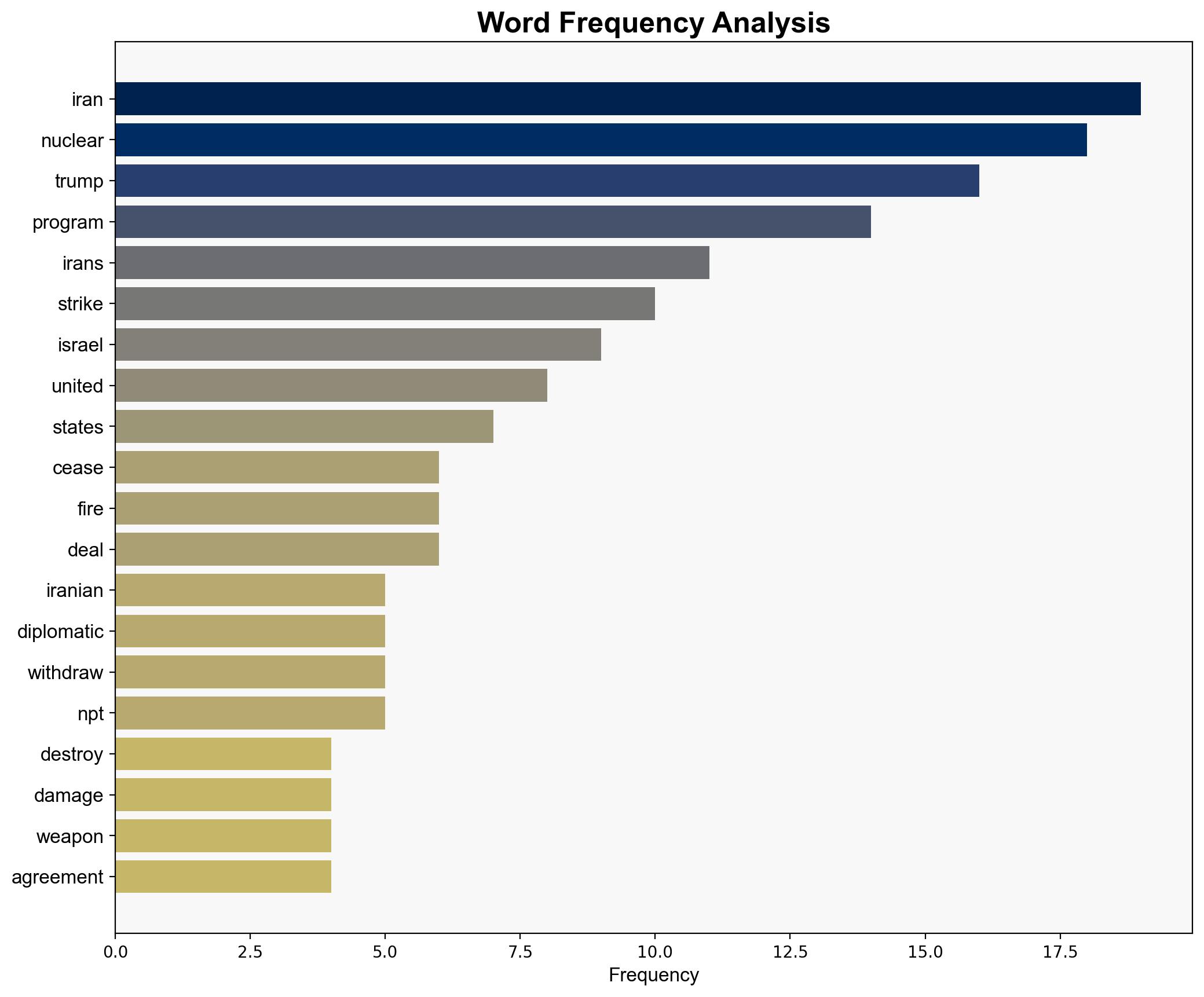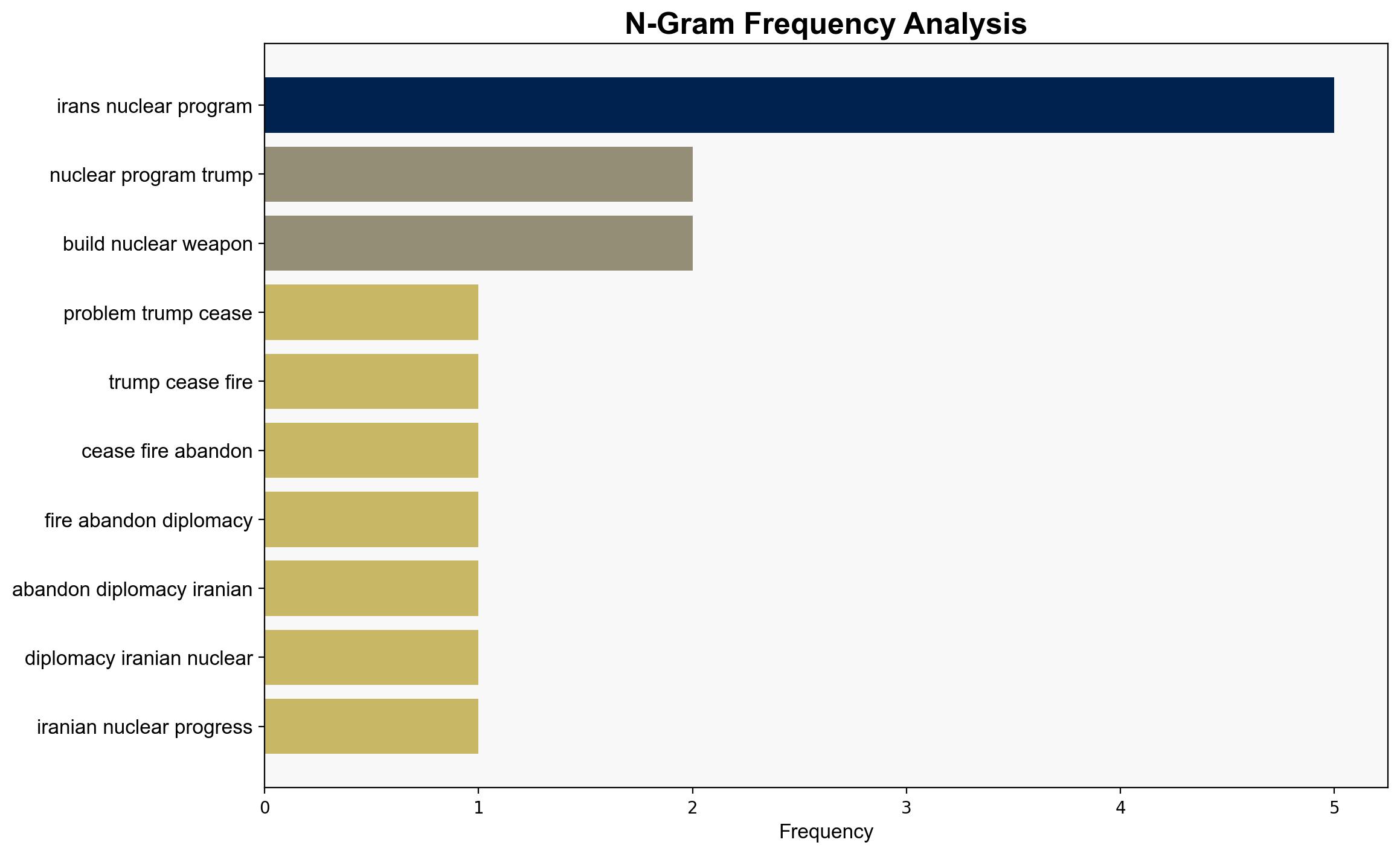The Problem With Trumps Cease-Fire – The Atlantic
Published on: 2025-06-24
Intelligence Report: The Problem With Trump’s Cease-Fire – The Atlantic
1. BLUF (Bottom Line Up Front)
The cease-fire announced by President Trump with Iran is fraught with strategic missteps, primarily due to the lack of a diplomatic framework to address Iran’s nuclear ambitions. The military strike failed to dismantle critical components of Iran’s nuclear program, leading to potential escalation and regional instability. It is imperative to pursue a robust diplomatic solution to prevent Iran from developing nuclear weapons, leveraging the current geopolitical leverage.
2. Detailed Analysis
The following structured analytic techniques have been applied to ensure methodological consistency:
Causal Layered Analysis (CLA)
At the surface level, the cease-fire appears as a temporary halt in hostilities. Systemically, it reflects a pattern of military-first approaches lacking diplomatic follow-through. The worldview underpinning this is a belief in unilateral military strength as a deterrent. The myth is that military action alone can ensure long-term security.
Cross-Impact Simulation
The cease-fire impacts regional dynamics, potentially emboldening Iran’s proxies like Hezbollah and Hamas. Economic dependencies, such as oil trade through the Strait of Hormuz, could be disrupted, affecting global markets.
Scenario Generation
– **Best Case**: A diplomatic agreement is reached, reinstating international inspections and limiting Iran’s nuclear capabilities.
– **Worst Case**: Iran withdraws from the NPT, accelerates its nuclear program, and regional conflicts escalate.
– **Most Likely**: Continued low-level conflicts with intermittent diplomatic engagements.
3. Implications and Strategic Risks
The cease-fire’s failure to address underlying issues increases the risk of nuclear proliferation and regional conflict. The absence of a diplomatic framework could lead to Iran covertly advancing its nuclear capabilities, similar to North Korea’s trajectory. The geopolitical instability may also affect global energy security.
4. Recommendations and Outlook
- Engage in multilateral diplomatic efforts to establish a verifiable agreement with Iran, ensuring compliance with nuclear non-proliferation standards.
- Enhance regional alliances to deter potential Iranian aggression and stabilize the Middle East.
- Monitor Iran’s nuclear developments closely and prepare contingency plans for rapid response to any escalation.
5. Key Individuals and Entities
– Donald Trump
– Iranian leadership
– Regional actors like Hezbollah and Hamas
6. Thematic Tags
national security threats, nuclear proliferation, regional stability, diplomatic strategy





